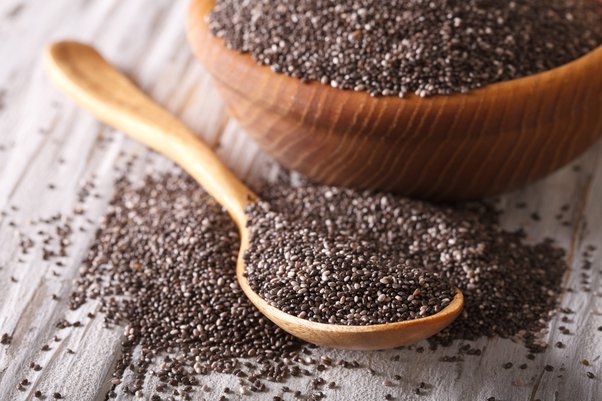Chia Seeds: The Superfood That Can Cause Digestive Distress and Allergic Reactions

Chia seeds are a popular superfood that has gained popularity in recent years due to their high nutrient content, including fiber, protein, and omega-3 fatty acids. While chia seeds offer many health benefits, eating too much of them can have adverse effects on your digestive system and cause allergic reactions. In this blog, we’ll explore the risks of eating too much chia seeds and how to incorporate them into your diet safely.
- Digestive Issues: Chia seeds are high in fiber, which is beneficial for digestive health. However, consuming too many chia seeds can cause bloating, gas, constipation, and abdominal pain. This is because the high fiber content in chia seeds can absorb water and expand in your stomach, causing discomfort and digestive issues.
- Allergic Reactions: Some people may develop an allergic reaction to chia seeds, which can cause symptoms like hives, itching, and difficulty breathing. If you experience any of these symptoms after consuming chia seeds, seek medical attention immediately.
- Interference with Medication: Chia seeds are high in omega-3 fatty acids, which can interfere with blood-thinning medications like aspirin or warfarin. If you are taking any medication, talk to your doctor before consuming chia seeds or any other high-omega-3 food.
- High Calorie Count: Chia seeds are high in calories, with one tablespoon containing around 60 calories. Consuming too many chia seeds can lead to weight gain and other health problems associated with excess calorie intake.
Tips for Incorporating Chia Seeds into Your Diet Safely:
- Start Slowly: If you are new to chia seeds, start with a small amount and gradually increase your intake over time.
- Stay Hydrated: Drink plenty of water when consuming chia seeds to help prevent digestive issues.
- Balance Your Diet: Chia seeds are a nutritious addition to your diet but should not be the sole source of nutrients. Incorporate chia seeds into a balanced diet that includes a variety of fruits, vegetables, lean proteins, and whole grains.
- Consult a Doctor: If you have any medical conditions or concerns about incorporating chia seeds into your diet, consult with a healthcare professional.
While chia seeds offer many health benefits, consuming too much can have adverse effects on your health. Incorporate chia seeds into your diet safely by starting slowly, staying hydrated, balancing your diet, and consulting a healthcare professional if you have any concerns.
Picture Courtesy: Google/images are subject to copyright








